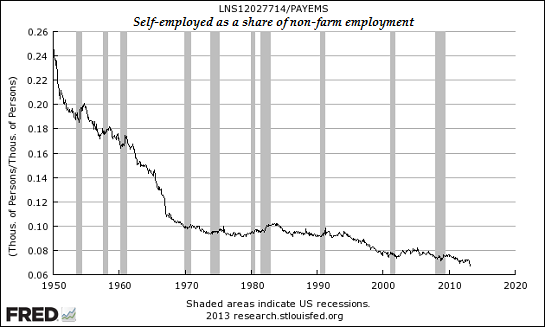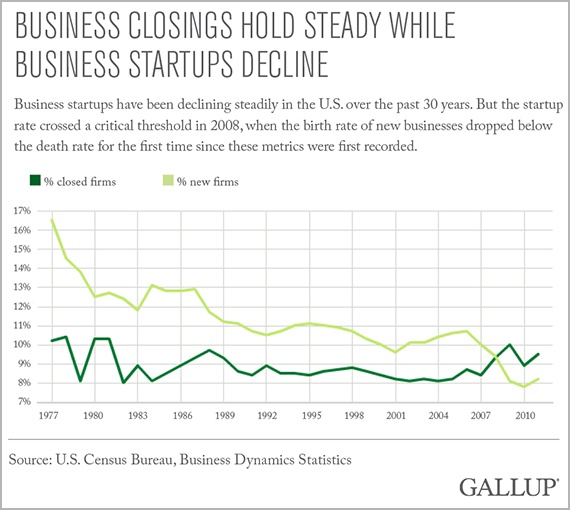LadyTevar wrote: 2022-12-25 10:31am
You're arguing in circles, and yes, it's all Marxist.
Is there anything ELSE to this discussion?
What circles am I arguing in?
My proposition is quite simple:
(A) One of the biggest outlets for the truly big capitalists has said that, in the future, individuals will own less than they do today. This is couched in enlightened policy terms; some of the rhetoric surrounding it borders on socialism, and has triggered a massive leave of hostility the Right across the globe, who are taking it very seriously. Yet all statistics indicate this is the course that world capitalism in the developed nations has been on for some time: small business ownership is in broad decline in America and Europe, housing is
under attack from hedge funds like BlackRock, etc. At the moment it looks like a faction of the GOP in America (primarily the pseudopopulist workerist group led by Josh Hawley) are the only ones concerned about this, because they can tie criticism of it into a socially conservative platform. But that it's actually happening and will accelerate in the future is indisputable. The conservatives see it, the WEF sees it, Marxists see it - the only ones who do not see it are nonMarxist leftists and liberals, who long ago abandoned analyzing capitalism anyway.
(B) Marx absolutely predicted conditions like this to emerge in developed capitalist society, not as socialism itself, but as a prelude to socialism. Marx discusses this also in the section of
Capital that talks about the financialization of capitalism and the transition of individual capitalists away from personal ownership of businesses towards becoming mere money managers, which has been basically complete for decades at this point.
1) An enormous expansion of the scale of production and of enterprises, that was impossible for individual capitals. At the same time, enterprises that were formerly government enterprises, become public.
2) The capital, which in itself rests on a social mode of production and presupposes a social concentration of means of production and labour-power, is here directly endowed with the form of social capital (capital of directly associated individuals) as distinct from private capital, and its undertakings assume the form of social undertakings as distinct from private undertakings. It is the abolition of capital as private property within the framework of capitalist production itself.
3) Transformation of the actually functioning capitalist into a mere manager, administrator of other people's capital, and of the owner of capital into a mere owner, a mere money-capitalist. Even if the dividends which they receive include the interest and the profit of enterprise, i.e., the total profit (for the salary of the manager is, or should be, simply the wage of a specific type of skilled labour, whose price is regulated in the labour-market like that of any other labour), this total profit is henceforth received only in the form of interest, i.e., as mere compensation for owning capital that now is entirely divorced from the function in the actual process of reproduction, just as this function in the person of the manager is divorced from ownership of capital. Profit thus appears (no longer only that portion of it, the interest, which derives its justification from the profit of the borrower) as a mere appropriation of the surplus-labour of others, arising from the conversion of means of production into capital, i.e., from their alienation vis-à-vis the actual producer, from their antithesis as another's property to every individual actually at work in production, from manager down to the last day-labourer. In stock companies the function is divorced from capital ownership, hence also labour is entirely divorced from ownership of means of production and surplus-labour. This result of the ultimate development of capitalist production is a necessary transitional phase towards the reconversion of capital into the property of producers, although no longer as the private property of the individual producers, but rather as the property of associated producers, as outright social property. On the other hand, the stock company is a transition toward the conversion of all functions in the reproduction process which still remain linked with capitalist property, into mere functions of associated producers, into social functions.
Note that second bolded portion: "The result of the ultimate development of capitalist production is s a necessary translational phase towards the reconversion of Capital into the property of producers, no longer as the private property of individual producers, but rather as the property of associated producers, as outright social property..." this essentially is what this is:
https://m.youtube.com/watch?v=Kpz6K1sSIPY
A total rentier economy, possibly peppered through with worker co-operatives, is what is meant by "the reconversion of Capital into the property of producers... as outright social property", as part of " the abolition of capital as private property within the framework of capitalist production itself". This necessarily represents, simultaneously, a transitional phase within capitalism out of capitalism and the emergence of hew forms of social control that will necessitate the abolition of capitalism further down the line.
These are the conditions Marx predicted, and they're all appearing quite quickly now. That doesn't mean I think we'll have world communist revolution this year or tis decade or even tis century - but the conditions which must necessarily create it are being produced: the emergence of social property within the capitalist mode of production and the simultaneous elimination of private property, again within capitalism, for the majority q humanity.
Tl;dr simplification: Over time capitalism takes away your property and implements co-cops and such to manage it. This becomes the basis down the line for a revolutionary movement. That's what Marx predicted and it's slowly coming about.
To be honest, we need to necromance Huey Long at this point... or at least his 'Share Our Wealth' idea.
Yes, that's pretty much how this Great Reset will be sold. It's the furthest possible development of capitalist production within capitalism, starts the production of revolutionary conditions with its abolition of property for the immense majority, and simultaneously socializes property within a marker framework.
I expect that the economy of four decades from now will be much more reliant on market-based co-ops, and private ownership of housing and small businesses will have immensely declined. These co-ops will be dependent on financial capital for sustenance and this will grant far more direct control to the capitalists over the activities of their workers than ever before. This extension of capitalism in this way necessitates revolt, because it eliminates even the illusion of the possibility of escaping these conditions through market activity, e.g. becoming a small business owner.
Politically, in the United States, the transition towards worker co-operatives will probably be pitched e.g. by populist conservatives, sold as an alternative to woke capitalism and the Great Reset.
https://m.youtube.com/watch?v=ReFaRKblfdU


